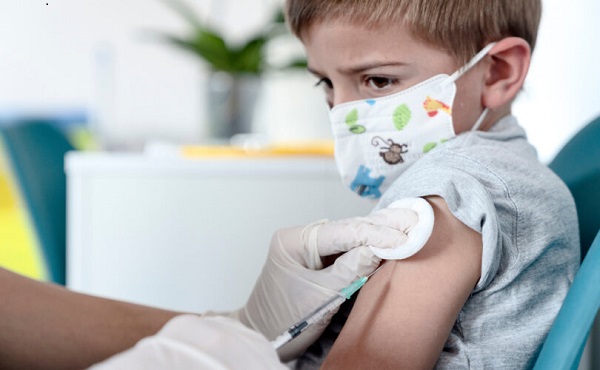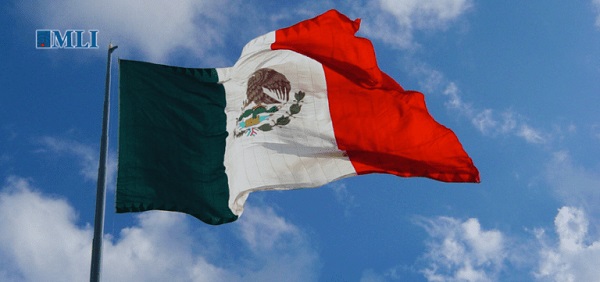Alberta
The way forward for energy development? Cenovus commits to building hundreds of homes in communities closest to their oil sands operations

From Cenovus Energy
Our Indigenous Housing program, the largest community investment initiative in Cenovus’s history, is aimed at addressing one of the most pressing issues facing Indigenous communities in Canada – the lack of adequate housing that is forcing many families to live in overcrowded and unsafe conditions.
The program involves a plan to commit $10 million per year for at least five years to build much-needed new homes in six First Nations and Métis communities closest to our oil sands operations in northern Alberta, with the potential to extend the project to 10 years. We see this initiative as an important way to contribute to reconciliation with Indigenous peoples.
We also plan to work with the communities to develop training programs, so that local residents can participate in the building and maintenance of the new homes.
The communities that are part of this program are:
- Beaver Lake Cree Nation
- Chard Métis (Local 218)
- Chipewyan Prairie Dene First Nation
- Cold Lake First Nations
- Conklin Métis (Local 193)
- Heart Lake First Nation
More information including comments from the surrounding communities
Cenovus to help address Indigenous housing crisis in northern Alberta
Project aims to provide about 200 new homes as well as jobs and training opportunities
Cenovus Energy Inc. has launched a major initiative aimed at addressing one of the most pressing issues facing Indigenous communities in Canada – the lack of adequate housing that is forcing many families to live in overcrowded and unsafe conditions. Cenovus is committing $10 million per year for five years to build much-needed new homes in six First Nations and Métis communities closest to its oil sands operations in northern Alberta, with the potential to extend the project to 10 years. The company sees this initiative as an important way to contribute to reconciliation with Indigenous peoples.
“Investing in Indigenous communities near our operations and ensuring they share in the benefits of resource development has always been part of how we do business. Today, we see an opportunity to step up and do more,” said Alex Pourbaix, Cenovus President & Chief Executive Officer. “We can’t solve the Indigenous housing crisis by ourselves, but through this initiative, we have the opportunity to significantly improve the lives of many families currently living in overcrowded and unsafe conditions.”
Developed as part of Cenovus’s recent 10th anniversary celebration, the housing initiative is the single largest community investment in the company’s history. It’s a testament to the strong positive relationships Cenovus has built over many years working with Indigenous communities near its Christina Lake and Foster Creek oil sands projects. Cenovus has met with leaders from Beaver Lake Cree Nation, Chard Métis (Local 218), Chipewyan Prairie Dene First Nation, Cold Lake First Nations, Conklin Métis (Local 193) and Heart Lake First Nation to begin planning the implementation of the housing program starting this year.
Cenovus plans to work with leaders from the six communities to determine the most effective ways of delivering new homes based on the specific needs of each community. It’s anticipated the communities will be able to build about 200 new houses in total over five years. Cenovus will also work with the communities to develop training programs, so that local residents can participate in the building and maintenance of the new homes. This will potentially create valuable education and employment opportunities for them in the long term. Depending on the success of the initiative, including meeting Cenovus’s performance expectations, the company may consider extending the program to 10 years with a total investment amount of $100 million.
“In addition to creating training and employment opportunities and funding the construction of new houses, Cenovus will also work with communities to raise awareness about the Indigenous housing shortage and help advocate for solutions,” said Pourbaix. “Communities have done an admirable job in managing their housing with limited resources. But this is a complex issue that will require new ideas and collaboration among many stakeholders. We hope to inspire other companies, governments and organizations to get involved.”
Separately, Cenovus has engaged its Indigenous Inclusion Advisory Committee, created in 2017 and comprised of senior leaders from various company functions, to help increase Indigenous inclusion in the company’s business. Since its inception in 2009, Cenovus has signed nine long-term benefits agreements with Indigenous communities near its oil sands operations and spent almost $3 billion with Indigenous owned and operated businesses. On January 9, 2020, Cenovus announced ambitious new targets in four environmental, social and governance (ESG) focus areas, including Indigenous engagement, climate & greenhouse gas emissions, land & wildlife, and water stewardship. A significant element of the Indigenous engagement ESG target commits Cenovus to spend at least an additional $1.5 billion with Indigenous businesses through 2030. Cenovus also continues to provide scholarships to Indigenous youth who are pursuing a full-time degree, diploma or certified trade program. More than 190 scholarships have been awarded since the Indigenous scholarship program started in 2013.
Shirley Paradis, Councillor, Beaver Lake Cree Nation
“Beaver Lake Cree Nation has always had housing issues. We’re at a capacity where we are trying to keep up with families’ needs. The most crucial thing is understanding that we have help now. Cenovus is stepping forward and saying: ‘We’re here to help, how do we help your community?’ There is going to be a sigh of relief for us.”
Justin Herman, CEO, Chard Métis (Local 218)
“What I am taking away from Cenovus’s announcement about the new housing initiative – it’s absolutely amazing and groundbreaking, and I hope it sets a precedent for the rest of the industry to follow the lead of Cenovus. We are excited and honoured to be part of this housing initiative.”
Vern Janvier, Chief, Chipewyan Prairie Dene First Nation
“We’re getting to the point where we have two families living in one house, and in some cases three. On top of the houses that are in disrepair, we have demand for another 50 houses. That’s how it builds up on us. And that’s just our reserve.”
Roger Marten, Chief, Cold Lake First Nations
“We have about 3,000 band members and only 300 homes. So, the crisis is always there and is always ongoing. The relationship has always been a great one with Cenovus; they have always listened and try to do the best they can to help us along the way.”
Val Quintal, Board member, Conklin Resource Development Advisory Committee, representing Conklin Métis (Local 193)
“Housing is a critical need for Conklin, and we are so pleased that Cenovus has come forward to help our community address this issue.”
Curtis Monias, Chief, Heart Lake First Nation
“I am really excited for Heart Lake. I look forward to working with all the surrounding communities, with industry, and I’m excited to build homes back home for my people.”
Alberta
On gender, Alberta is following the science

Despite falling into disrepute in recent years, “follow the science” remains our best shot at getting at the truth of the physical sciences.
But science, if we are to place our trust in it, must be properly defined and understood; it is at its essence an ever-changing process, a relentless pursuit of truth that is never “settled,” and one that is unafraid to discard old hypotheses in the face of new evidence.
And it is in this light—in the unforgiving glare of honest science—that Alberta Premier Danielle Smith’s three new legislative initiatives around gender policy are properly understood, notwithstanding the opprobrium they’ve attracted from critics.
Bill 26, the Health Statutes Amendment Act, proposes to prohibit the prescription of puberty blockers and cross-gender hormones for the treatment of gender dysphoria to youth aged 15 and under. It would allow minors aged 16 and 17 to begin puberty blockers and hormone therapies for gender “reassignment” and “affirmation” purposes only with parental, physician, and psychologist approval. The bill also prohibits health professionals from performing sex reassignment surgeries on minors.
Bill 27, the Education Amendment Act, seeks to enshrine parents’ rights to be notified if their kids change their names/pronouns at school, and it gives parents the right to “opt in” to what sort of gender and sex education their kids are exposed to in school.
And Bill 29, the Fairness and Safety in Sports Act, is designed to protect females in sports by ensuring that women and girls can compete in biological female-only divisions, while supporting the formation of co-ed opportunities to support transgender athletes.
Each of these initiatives is entirely reasonable, given what we know of the science underpinning “gender care,” and of the undeniable advantages that a male physique confers upon biological males competing in sports.
The notion that the trifecta of puberty blockers, cross-gender hormones, and revisionist surgery is a pathway to good health was a hypothesis initially devised by Dutch researchers, who were looking to ease the discomfort of transgender adults struggling with incongruence between their physical appearance and their gender identities. As a hypothesis, it was perhaps reasonable.
But as the UK’s Cass Review exposed in withering detail last spring, its premises were wholly unsupported by evidence, and its implementation has caused grievous harm for youth. As Finnish psychiatrist Riittakerttu Kaltiala, one of the architects of that country’s gender program, put it last year, “Gender affirming care is dangerous. I know, because I helped pioneer it.”
It’s no accident, then, that numerous European jurisdictions have pulled back from the “gender affirming care” pathway for youth, such as Sweden, Finland, Belgium, the Netherlands, and the United Kingdom.
It makes perfect sense that Canadians should be cautious as well, and that parents should be apprised if their children are being exposed to these theories at school and informed if their kids are caught up in their premises.
Yet the Canadian medical establishment has remained curiously intransigent on this issue, continuing to insist that the drug-and-surgery-based gender-affirming care model is rooted in evidence.
Premier Smith was asked by a reporter last month whether decisions on these matters aren’t best left to discussions between doctors and their patients; to which she replied:
“I would say doctors aren’t always right.”
Which is rather an understatement, as anyone familiar with the opioid drug crisis can attest, or as anyone acquainted with the darker corners of medical history knows: the frontal lobotomy saga, the thalidomide catastrophe, and the “recovered memories of sexual abuse” scandal are just a few examples of where doctors didn’t “get it right.”
As physicians, we advocate strongly for self-regulation and for the principle that medical decisions are private matters between physicians and patients. But self-regulation isn’t infallible, and when it fails it can be very much in the interests of the public—and especially of patients—for others to intervene, whether they be journalists, lawyers, or political leaders.
The trans discussion shouldn’t be a partisan issue, although it certainly has become one in Canada. It’s worth noting that Britain’s freshly elected Labour Party chose to carry on with the cautious approach adopted by the preceding administration in light of the Cass Review.
Premier Smith’s new polices are eminently sensible and in line with the stance taken by our European colleagues. None of her initiatives are “anti-trans.” Instead, they are pro-child, pro-women, and pro-athlete, and it’s difficult to see how anyone can quibble with that.
Dr. J. Edward Les, MD, is a pediatrician in Calgary, senior fellow at the Aristotle Foundation for Public Policy, and co-author of Teenagers, Children, and Gender Transition Policy: A Comparison of Transgender Medical Policy for Minors in Canada, the United States, and Europe.
Alberta
Alberta mother accuses health agency of trying to vaccinate son against her wishes

From LifeSiteNews
Alberta Health Services has been accused of attempting to vaccinate a child in school against his parent’s wishes.
On November 6, Alberta Health Services staffers visited Edmonton Hardisty School where they reportedly attempted to vaccinate a grade 6 student despite his parents signing a form stating that they did not wish for him to receive the vaccines.
“It is clear they do not prioritize parental rights, and in not doing so, they traumatize students,” the boy’s mother Kerri Findling told the Counter Signal.
During the school visit, AHS planned to vaccinate sixth graders with the HPV and hepatitis B vaccines. Notably, both HPV and hepatitis B are vaccines given to prevent diseases normally transmitted sexually.
Among the chief concerns about the HPV vaccine has been the high number of adverse reactions reported after taking it, including a case where a 16 year-old Australian girl was made infertile due to the vaccine.
Additionally, in 2008, the U.S. Food and Drug Administration received reports of 28 deaths associated with the HPV vaccine. Among the 6,723 adverse reactions reported that year, 142 were deemed life-threatening and 1,061 were considered serious.
Children whose parents had written “refused” on their forms were supposed to return to the classroom when the rest of the class was called into the vaccination area.
However, in this case, Findling alleged that AHS staffers told her son to proceed to the vaccination area, despite seeing that she had written “refused” on his form.
When the boy asked if he could return to the classroom, as he was certain his parents did not intend for him to receive the shots, the staff reportedly said “no.” However, he chose to return to the classroom anyway.
Shortly after, he was called into the office and taken back to the vaccination area. Findling said that her son then left the school building and braved the sub-zero temperatures to call his parents.
Following his parents’ arrival at the school, AHS claimed the incident was a misunderstanding due to a “new hire,” attesting that the mistake would have been caught before their son was vaccinated.
“If a student leaves the vaccination center without receiving the vaccine, it should be up to the parents to get the vaccine at a different time, if they so desire, not the school to enforce vaccination on behalf of AHS,” Findling declared.
Findling’s story comes just a few months after Alberta Premier Danielle Smith promised a new Bill of Rights affirming “God-given” parental authority over children.
A draft version of a forthcoming Alberta Bill of Rights provided to LifeSiteNews includes a provision beefing up parental rights, declaring the “freedom of parents to make informed decisions concerning the health, education, welfare and upbringing of their children.”
-

 Brownstone Institute2 hours ago
Brownstone Institute2 hours agoThe Most Devastating Report So Far
-

 Economy14 hours ago
Economy14 hours agoCOP 29 leaders demand over a $1 trillion a year in climate reparations from ‘wealthy’ nations. They don’t deserve a nickel.
-

 Alberta12 hours ago
Alberta12 hours agoOn gender, Alberta is following the science
-

 Energy13 hours ago
Energy13 hours agoOttawa’s proposed emission cap lacks any solid scientific or economic rationale
-

 Bruce Dowbiggin1 hour ago
Bruce Dowbiggin1 hour agoCHL Vs NCAA: Finally Some Sanity For Hockey Families
-

 Brownstone Institute1 day ago
Brownstone Institute1 day agoFirst Amendment Blues
-

 Crime2 days ago
Crime2 days agoMexican cartels are a direct threat to Canada’s public safety, and the future of North American trade
-

 Business2 days ago
Business2 days agoDEI gone?: GOP lawmakers prep to clean house in federal government



